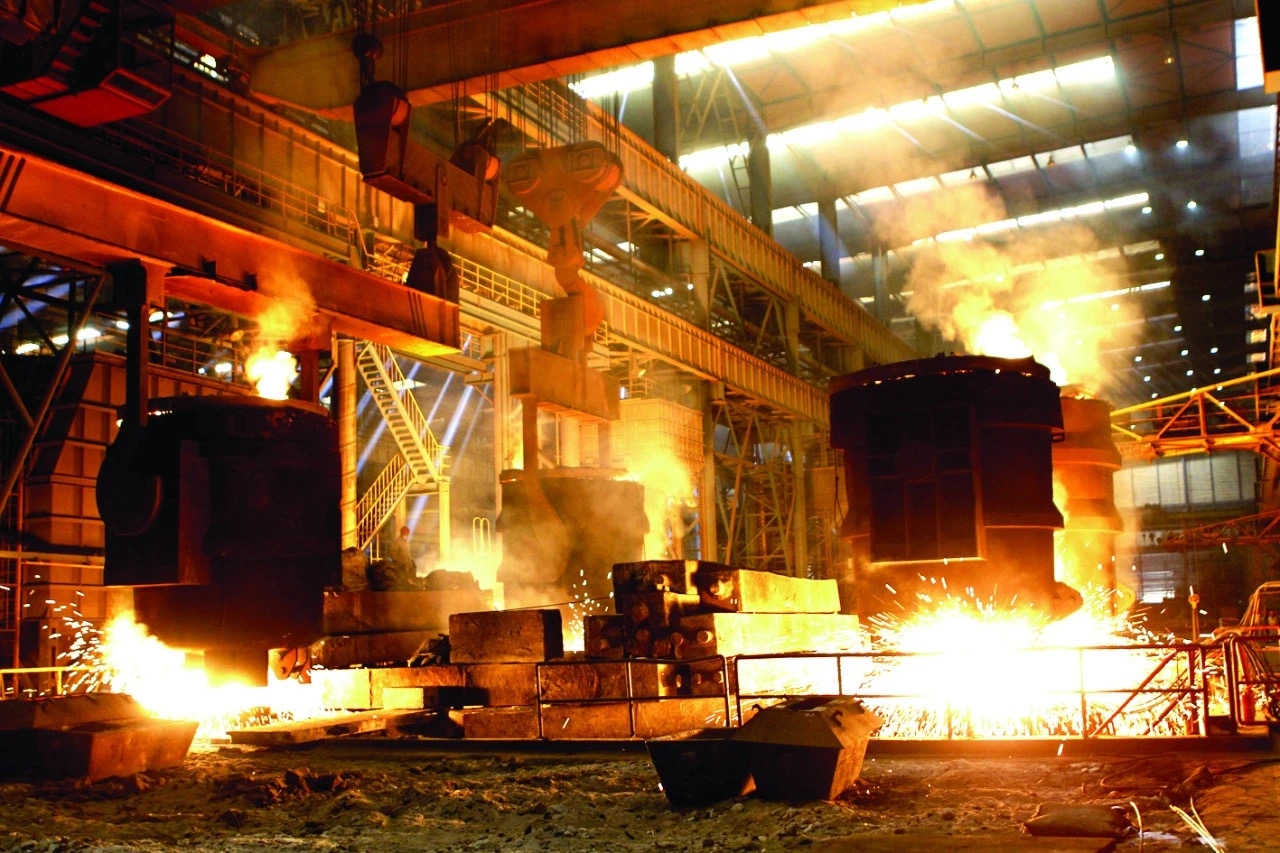According to the rolling state of the rolling mill, the production process of the sheet steel mill can be divided into two types: the hot-rolled steel plate process and the cold-rolled steel plate process. Among them, the process of hot-rolled medium plate, thick plate and thin plate in metallurgical engineering is similar. Generally, it goes through the main steps of raw material preparation – heating – rolling – hot state correction – cooling – flaw detection – orange trimming, which are described as follows.
The slab is transported into the slab warehouse by the continuous casting or blooming plant, unloaded by the crane and stored in the warehouse (the silicon steel slab is sent to the silicon steel billet warehouse by the heat preservation truck, and is unloaded into the heat preservation furnace by the crane. , After supplementary cleaning, it is still put into the holding furnace to be rolled). During the production of metallurgical engineering, the slabs are hoisted to the track individually by cranes, and then pushed into the furnace for heating before being transported to the heating furnace. There are two types of heating furnaces: continuous type or flat-section type. The heated plate is transported to the vertical scale breaker by the output track to remove the primary scale. Then enter the first and second two-high roughing mills, roll back and forth for three or five passes, and then enter the third and fourth four-high roughing mills for continuous rolling, rolling one pass. During the rolling process, high-pressure water is used to remove the oxide scale, and the general thickness is rolled to 20~40mm. After the fourth roughing mill, the thickness, width and temperature are measured. After that, before being sent from the roller table to the finishing mill, the flying shear head (and the tail can also be cut) are firstly carried out, and then the continuous rolling is carried out through the four-high finishing mill. After continuous rolling, the steel strip is cooled by laminar flow and enters the downcoiler to be rolled into hot-rolled steel coils, and the rolling process is completed. Then, the coils are sent to the cold rolling mill, the silicon steel sheet and the finishing system of our factory according to the different uses of the steel coil. The purpose of metallurgical engineering finishing is to correct the shape, improve the mechanical properties and improve the surface shape. Generally, there are five processing lines, including three cross-cutting processing lines, one slitting processing line, and one hot flattening processing line. After finishing, Packed by variety and ready for dispatch.
The entire rolling process of the production line is fully automated. That is, starting from the feeding roller table – heating furnace heating – blooming mill rolling – finishing mill rolling laminar cooling – coiler coiling – until the bifurcation point of the steel coil transport chain, the entire production process consists of one process. Control computer (SCC) and three digital direct control computers (DDC) for automatic control.
Post time: Aug-15-2022

